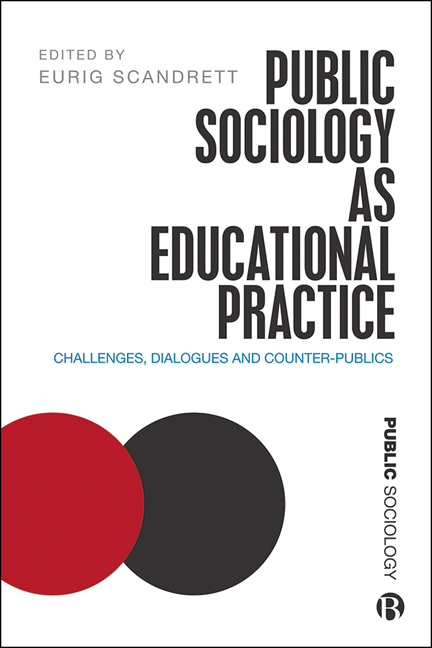II.5 - English Last: Displaced Publics and Communicating Multilingually as Social Act and Art
Published online by Cambridge University Press: 02 March 2021
Summary
once in a while
i hear the comment
you speak good english
in my school days
it was a compliment
but at some point it got a bit complicated
Tawona SitholéIntroduction
None of the authors of this chapter are sociologists. All of them have featured in a major international, sociological keynote and public lecture. Each has been, and may still claim to be, an indigenous person (one, somewhat tenuously). Each is a migrant. Each is a multilingual. Each is an artist.
There is something strange, consequently, for each to be invited to contribute to a volume on public sociology education without actually having any of the qualifications. For Alison, this was made particularly stark at the Australian Sociological Association's 2017 conference in Perth, Western Australia. She had been invited to give the public keynote lecture, perhaps the highest guest honour. In the opening sessions all delegates were given the task of asking themselves the question, ‘When did you give your first sociology paper at a sociology conference.’ Everyone had an example, except for those just starting out, and they were given a warm welcome as they made their rite of passage into the scholarly communities of sociologists.
Alison was the imposter, and the materials in her bag for her public lecture were those of equal imposters, the co-authors of this chapter. She wore a suit made by the sociology imposter Naa Densua Tordzro for the occasion. It was hand woven, and tailored, and it was a research output. This was not a normal piece of ‘data’ or ‘result’ or ‘finding’ for the sociologists gathered together. Nor was it a normal for a middleaged public lecture to be given by a white, educated women wearing kente cloth. The cloth was also to become the design for the book cover of the anthology of poetry written by the next imposter, Tawona Sitholé, whose work with Alison would also feature in the public lecture. Finally, there was the music, composed by the final imposter, Gameli Tordzro. All of this was public, in a setting marked up as the most sociological of sociological spaces by the doyens of sociology, able to designate, or otherwise, what it means to be a sociologist.
- Type
- Chapter
- Information
- Public Sociology as Educational PracticeChallenges, Dialogues and Counter-Publics, pp. 183 - 198Publisher: Bristol University PressPrint publication year: 2020

